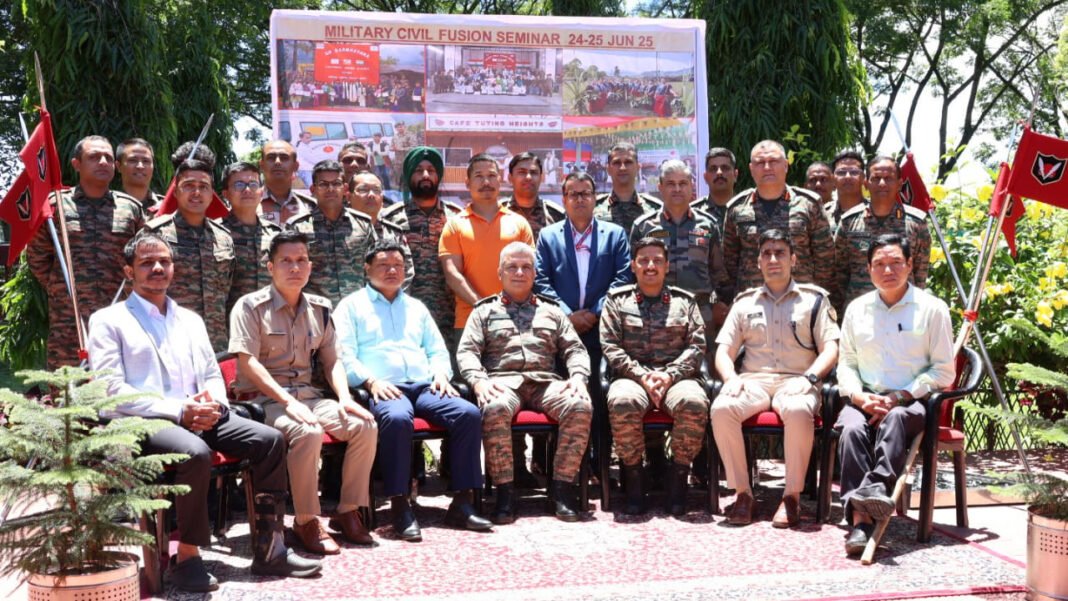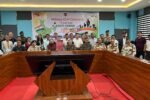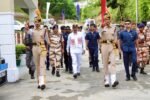HT Correspondent
RAYANG, June 27: A two-day Military-Civil Fusion Seminar concluded at Rayang in East Siang district, Arunachal Pradesh, with a strong message on the importance of coordinated national efforts in defence preparedness, regional development, and sustainable nation-building. The event, organised to foster a whole-of-nation approach, brought together a diverse group of stakeholders from the military, civil administration, and various strategic sectors.
According to an official statement, the seminar saw the active participation of representatives from the Military, Indo-Tibetan Border Police (ITBP), Border Roads Organisation (BRO), National Hydroelectric Power Corporation (NHPC), Rashtriya Raksha University (RRU), the Agriculture Department, the National Cadet Corps (NCC), and the State Police. Key government officials including Upper Siang Deputy Commissioner Talo Jerang, Upper Siang Superintendent of Police Token Saring, and Pasighat Superintendent of Police Pankaj Lamba were also present, sharing their insights on administrative and law enforcement challenges and opportunities in the region.
The seminar opened with discussions centred on border management, infrastructure and capability development, tourism promotion, and Humanitarian Assistance and Disaster Relief (HADR) coordination. Stakeholders exchanged institutional approaches and explored joint strategies aimed at strengthening security and fostering sustainable growth in India’s sensitive border regions.
On the second day, deliberations extended to long-term strategic initiatives, notably the Siang Multipurpose Project, and the role of human resource development as a foundation of national strength. The General Officer Commanding of the Spearhead Division contributed to the discussions, offering perspectives on civil-military synergy and reinforcing the importance of collaborative frameworks in achieving national objectives.
The seminar concluded with a consensus on several key deliverables and a roadmap for future collaboration. Among the proposed actions were improved inter-agency coordination mechanisms, aligned infrastructure planning, enhanced disaster response protocols, and the promotion of strategic tourism as a means of economic empowerment and national integration.
The event highlighted the critical role of integrated responses to both traditional and emerging challenges and reaffirmed the collective resolve of all participating agencies to work together for a secure, resilient, and developed nation.












